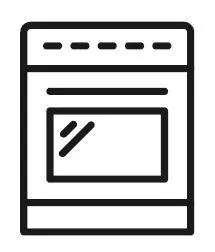Tax time is here.
What you need to know.
With The Australian Taxation Office cracking down on landlords' deductions,
we thought we'd prepare our top tips for tax time.

A review found nearly nine out of ten landlords made mistakes on their annual returns,
and incorrectly claimed expenses.
When utilising a property manager, this should be hard to do, with the property manager collating all income and expenses into one statement for you to send direct to your accountant- along with the interest you pay on your investment loan.
However there are a few things to consider, especially if you manage your investments yourself or you perform the maintenance on the homes yourself.
INCLUDE ALL RENTAL INCOME
GET YOUR EXPENSES RIGHT
SELLING A RENTAL PROPERTY
KEEP GOOD RECORDS TO PROVE IT
SEEK PROFESSIONAL ADVICE
Include ALL Rental Income
Each year, the volume of data accessed by the ATO continues to grow, enabling them to identify any unreported rental income that landlords have received from their tenants more efficiently and rapidly.
When preparing your tax returns, it is crucial to ensure that all rental income is accurately accounted for. This includes income from short-term rental arrangements, subletting a portion of your home, and other sources of rental-related income such as insurance payouts and retained rental bond funds.
The Australian Taxation Office (ATO) obtains rental income information from various sources, including:
Platforms involved in the sharing economy
Property management software providers
State and Territory revenue and land title authorities
Rental bond authorities
Get Your Expenses Right.
NOT ALL EXPENSES ARE THE SAME!
It’s important to note that if you refinance or withdraw funds from a rental property loan for personal expenses like vacations or purchasing a car, the portion of interest related to the loan for those private expenses cannot be claimed as a tax deduction.
You can claim expenses for the property to the extent that they are incurred for the purpose of producing rental income, not where your family and friends stayed in the property for a mini getaway at mate’s rates, you use it yourself, say at Christmas, or you stopped renting the property out, so be sure to keep that in mind.
04

Some expenses are immediately deductible, such as rental management fees, council rates, repairs, loan interest, and insurance premiums.

On the other hand, there are expenses like borrowing costs and capital works that need to be claimed over multiple years.

Capital works may involve significant renovations like roof replacement or kitchen remodelling.

Additionally, depreciable assets such as a dishwasher or oven with a cost exceeding $300 are claimed gradually over their useful life.
Selling A Rental Property
When selling a rental property, capital gains tax (CGT) needs to be considered, and any capital gains or capital losses need to be reported.
If you’ve sold a rental property that was once your home, you may be entitled to partially claim the main residence exemption. You will need to claim this exemption in your tax return when you lodge.
Records of all income and expenses relating to rental properties, including purchase and sale records, must be kept. This ensures all eligible deductions are captured when preparing tax returns and capital gains tax can be calculated correctly when the property is sold.
Examples of Cost Base deductions:
Stamp Duty
Legal Fees
Valuations
Real Estate Sales Fees
Capital Works

When calculating a capital gain or capital loss, it's important to get the cost base calculation right. Cost base is usually the cost of the property when purchased and any costs associated with acquiring or selling it.
Keep good records to prove it all.
Adequate records should demonstrate how the expense was incurred for the rental property and the extent they relate to producing rental income.
They must include the name of the supplier, the amount of the expense, the nature of the goods or services, the date the expense was incurred, and the date of the document.
Records of rental income and expenses should be kept for five years from the date of tax return lodgements or five years after the disposal of an asset, whichever is longer.
So get your books in order and start keeping records as soon as you make the decision to earn rental income. It makes tax time so much easier for you and your registered tax agent.
Seek Professional Advice
Tax matters can be complex, especially for investors with diverse portfolios. Consider consulting with a qualified tax professional or an accountant who specialises in investment taxation.
They can provide personalised advice tailored to your specific circumstances and help you maximise your tax benefits while ensuring compliance with the tax laws.
Remember, this guide provides general information and should not be considered as personalised financial or tax advice. It’s always recommended to consult with a qualified professional for specific advice tailored to your situation.
Need an updated appraisal
for your tax records?
Fill in your details below and we will be in touch to prepare you an appraisal.
Disclaimer:
This guide provides general information and should not be considered as personalised financial or tax advice. It’s always recommended to consult with a qualified professional for specific advice tailored to your situation
This website uses cookies, so we can improve your experience on this site, analyse traffic and provide you with relevant advertising.
To find out more, please see our Cookies Policy in the Privacy Policy below.
By continuing to use this site, you agree to our use of cookies.
Copyright ⓒ 2023 | Privacy Policy
